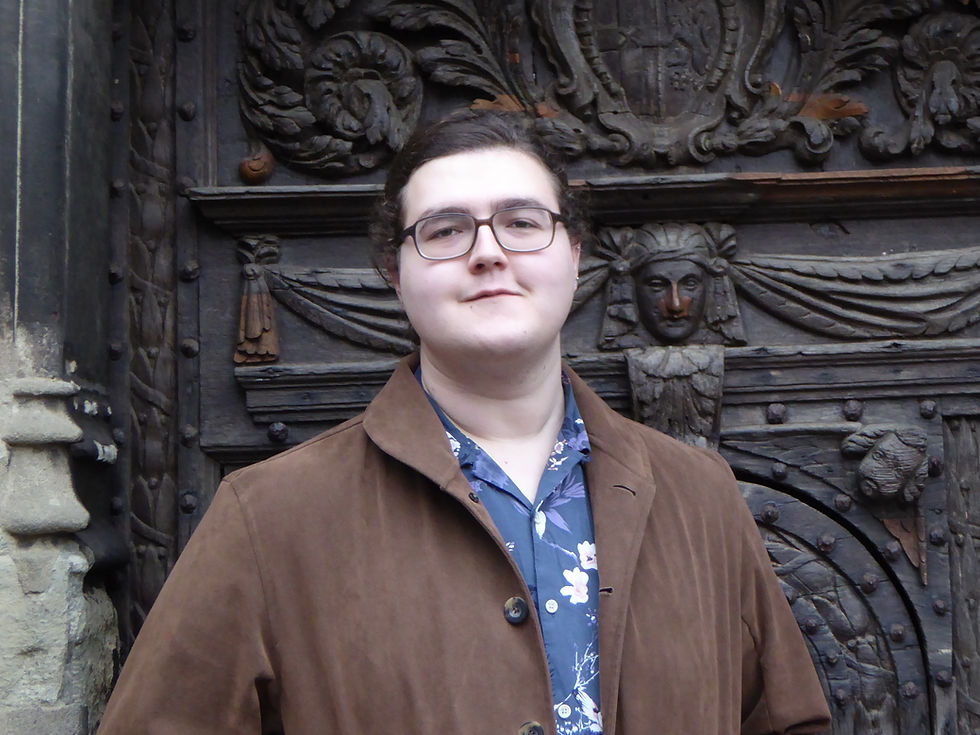
Luna's third Call for Papers, A Shadow Within: Evil in Fantasy and Science Fiction will be released on Wednesday the 14th of August, at Dublin Worldcon. Explore the 21 brilliant papers you will find in the book.
Today, we would like to introduce you to Thomas Moules (UK), MLitt in Fantasy Literature, University of Glasgow. Writer of non-fiction.
Presenting the paper: “I have done only what was necessary - An exploration of individual and structural evil in the works of N. K. Jemisin.”
Thomas says:
"Fantasy has something of a historical tendency to attribute the origin of evil to a single figure. As a trope, the Dark Lord has been codified in John Clute and John Grant’s Encyclopedia of Fantasy (1997) and Diana Wynne Jones’s Tough Guide to Fantasyland (1996). This can be seen to demonstrate the way in which a lot of fantastical texts deal with the concept of evil – by making it an external influence and a metaphysical force, rather than something internal and a product of human decisions. The argument of this article is that this trilogy represents the culmination of a running theme in Jemisin’s work, which is the deconstruction of this old interpretation of evil and the introduction of a more decentralised model. This paper will examine the Broken Earth series, which consists of The Fifth Season (2016a), The Obelisk Gate (2016b), and The Stone Sky (2017). There are a few possible candidates for Dark Lord status in Jemisin’s work, but these figures do not, I will argue, qualify for the label for a variety of reasons. They are neither the source nor the focus of the evil discussed in their respective texts, as the evil in Jemisin’s work tends to be derived from social structures and the choices that individuals make under the influence of those structures, rather than as a result of a single evil force.
I will be focusing on some of the main characters across the Broken Earth trilogy which can be construed as evil, as well as exploring the ways that the societal structures within the novel lead to and influence their choices. The definition of evil itself is somewhat outside the scope of this paper, though the notion that evil is a socially constructed category and can often have political uses is a vital underpinning of my argument. The societies in Jemisin’s works have a variety of different understandings of evil, and the various exceptions to the moral codes of the characters are used to demonstrate the fluid, contradictory, and very human nature of morality.
The series centres around various magic users known as orogenes. They have the ability to control seismic events, and are feared and marginalised by other humans for a variety of reasons that I will explore throughout the essay. The human societies in the trilogy are set at odds with various nonhuman factions. These various factions and societies have competing aims and operate under different definitions of good and evil, which is used to explore the contingent nature of human morality. The third book in the trilogy, The Stone Sky, explores the reasons for the earth becoming known as ‘Evil Earth’ (Jemisin, 2016a, p. 114). This raises some complex questions about the way that the earth’s actions are perceived – is it a justified reaction to what was done to the earth by humans, simple indifference, or something not quite either?
The title quote is taken from The Obelisk Gate (2016b), and it is used to justify the murder of a family. The notion of ‘doing what is necessary’, either for duty or survival, is a repeated motif throughout the trilogy, especially with regard to the Guardians. They are arguably the closest thing to a straightforward depiction of an evil organisation in the vein of the Voldemort-controlled Ministry of Magic towards the end of the Harry Potter series. The Guardians are dedicated to finding and controlling orogenes. Their methods are undoubtedly cruel, but they do not believe their actions to be wrong, or can justify them (to themselves, if not to others) under the framework of duty.
This paper will explore the issues raised by conflicting definitions of evil between groups in the Broken Earth trilogy, and the ways in which various characters justify acts that could be seen as evil, in a series with a conspicuous absence of a controlling Dark Lord figure."
Thomas Moules has a MLitt in Fantasy Literature from the University of Glasgow.
For Luna Press Publishing: A Shadow Within: Evil in Fantasy and Science Fiction.
A Shadow Within: Evil in Fantasy and Science Fiction
is now in pre-order!

תגובות